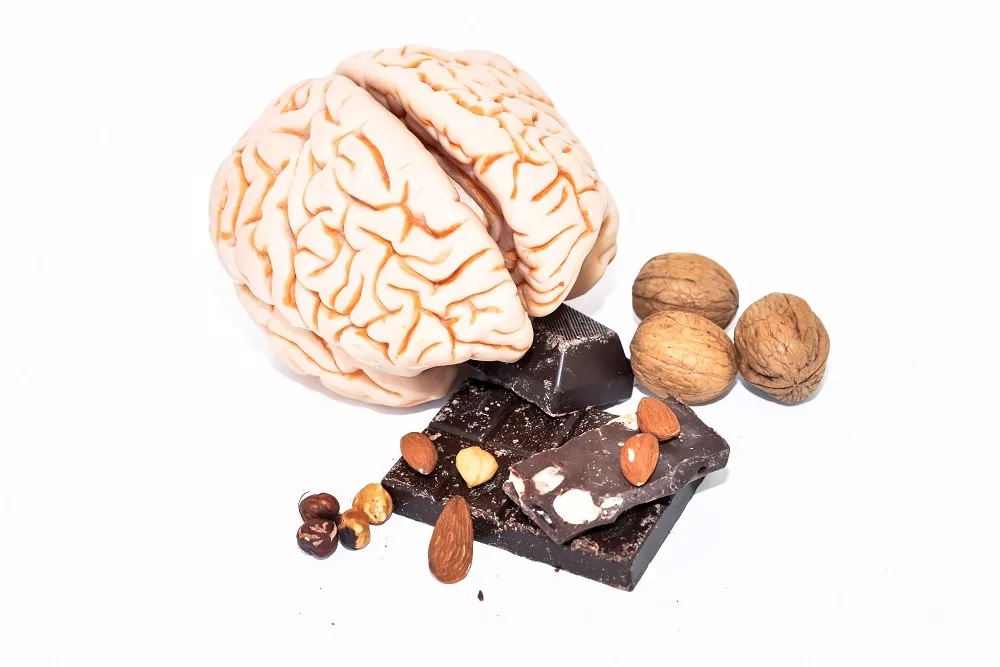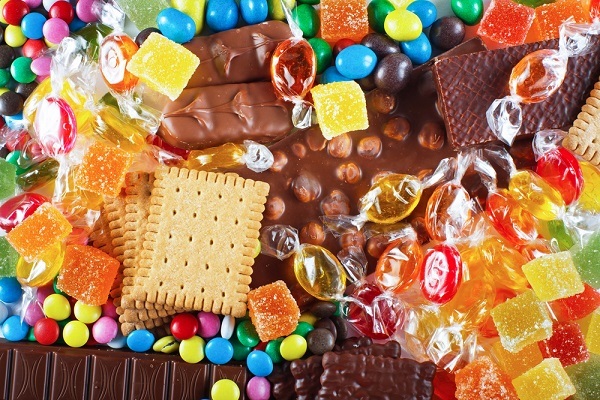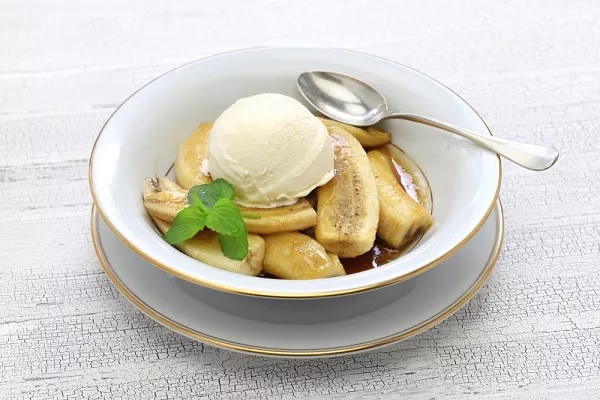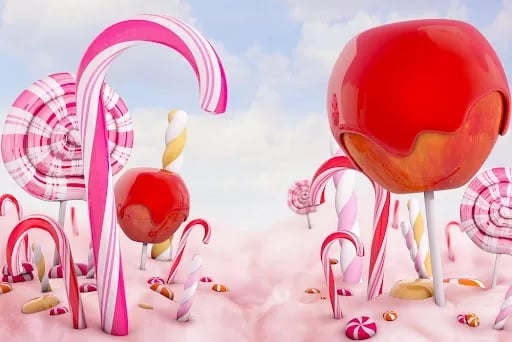Recovering from alcohol addiction is a challenging journey, often accompanied by unexpected changes in the body and mind. One surprising phenomenon many recovering individuals experience is intense sugar cravings after quitting alcohol. While it might seem unrelated at first, these sugar cravings are a common occurrence among those striving for sobriety.
Is it normal to crave sugar after quitting alcohol? Why do alcoholics crave sugar? Can candy really help to achieve sobriety? Leading addiction treatment specialists at Avenues Recovery explore the connection between alcohol and sugar cravings, why they occur, and how they might impact recovery.
Candy: A Sweet Tool for Sober Living
Gene Wilder did amazing things for our capacity to dream. In Mel Stuart’s Willy Wonka and the Chocolate Factory, he and uncredited screenwriter David Seltzer presented us a world in which possibility is limited only by imagination. Candy takes on untold power in this movie, bringing to light the sins of the wicked while enriching the lives of the worthy. Before we even meet Willy Wonka himself, the clerk at the candy shop paints Wonka as some sort of prophetic purveyor of positive psychology.
“Who can take tomorrow, dip it in a dream, separate the sorrow and collect up all the cream?”
Meanwhile, modern society inadvertently casts candy in a horrifyingly negative light. Avid consumers of televised programming have probably seen the M&M commercials in which sugar-high chocolate addicts threaten the lives of sentient beings just to get their next fix. The only one safe from these kill-happy chocolate fiends is the green M&M, who usually appears as the focus of lonely men with less-than-honorable intentions.
Alcoholics and drug addicts do not usually find ourselves as far gone as the candy lovers in these commercials, nor do we croon poetically about our substance of choice like Charlie Bucket’s favorite candy shop owner. But we do experience cravings. And believe it or not, candy often helps us set them aside.
The notion of using candy as substitutes for alcohol cravings sounds like a bad joke, something that would end with the punchline “chocoholic.” That’s okay—you don’t have to take our word for it. Let’s examine the experiences of others in recovery, along with a few expert opinions.
Why do Alcoholics Crave Sugar?

Let’s talk about why so many recovering addicts and alcoholics seem to have sweets on the brain. (rozbeh/Shutterstock)
There are a number of reasons for sugar cravings after quitting alcohol, such as:
- Eating something sweet quells the desire for alcohol
- Psychological: substituting the physical action of eating candy in place of drinking alcohol
- Sugar activates the brain’s reward centers just like addictive substances do
Let’s explore these reasons in more detail.
Using sugar as one of the substitutes for alcohol cravings predates most of the actual research on it. Back in the 1930s, while writing Alcoholics Anonymous, the AA founders included the following paragraph:
“One of the many doctors who had the opportunity of reading this book in manuscript form told us that the use of sweets was often helpful, of course depending upon a doctor’s advice. He thought all alcoholics should constantly have chocolate available for its quick energy value at times of fatigue. He added that occasionally in the night a vague craving arose which would be satisfied by candy. Many of us have noticed a tendency to eat sweets and have found this practice beneficial.”
They elaborate on this in the AA-approved guidebook, Living Sober, suggesting that the taste of something sweet simply kills our desire for the harsh taste of hard liquor or bitter beer. This book further notes that cravings become stronger on an empty stomach.
Are Sugar Cravings After Quitting Alcohol All in the Mind?
Living Sober also believes the solution might be entirely psychological:
“Some of us think it is more than the taste that helps quell the impulse toward alcohol. It may also be, in part, just substituting a new set of physical actions: getting a soft drink, a glass of milk or fruit juice, and some cookies or some ice cream, then drinking or chewing, and swallowing.”
This explanation certainly seems much simpler, and makes a fair amount of sense. Other simple explanations for craving sugar after quitting alcohol exist as well. For instance, those seeking rationale of a more substance-based nature may prefer the ideas offered up by Hamilton B., author of Getting Started in AA:
“Alcohol is basically sugar. When we withdraw from alcohol, we often develop a craving for the missing sugar.”
The Candy Cure Substitute
Sugar works as a substitution for more than just alcohol. Users of drugs such as meth, heroin and cocaine often crave sugar as well. Some propose that this simply correlates to the activation of the brain’s reward centers.
A few articles even suggest that Oreo cookies, which activate the brain’s nucleus acumens, may prove as addictive—if not more so—than the drugs that the sugar attempts to replace. The study [1] leading to that conclusion does not actually prove this, but the hypothesis certainly sparks interest among many. Either way, sugar temporarily raises our serotonin level.
The word “temporarily” is noteworthy. We should not forget this when deciding how to incorporate candy into our relapse prevention plan.
Using Candy in Your Prevention Plan

Be sure to balance your sweets with real food, and consider replacing candy with fruit if you’re trying to eat healthy. (Alwayswin/Shutterstock)
Just because we can use candy to fight cravings does not mean we should rely on sugar too heavily. While Living Sober may suggest the idea, the same book also cautions against excess consumption:
“Like almost any other ideas, the suggestions in this booklet can be misused. For example, take the notion of eating candy. Obviously, alcoholics with diabetes, obesity, or blood-sugar problems have had to find substitutes, so they would not endanger their health, yet could still get the benefit of the candy-eating idea in recovery from alcoholism. (Many nutritionists favor protein-rich snacks over sweets as a general practice.) Also, it’s not good for anybody to overdo this remedy. We should eat balanced meals in addition to the candy.”
In fact, an article on SFGate’s Healthy Eating [2] page suggests that candy could increase cravings when misused. Simple carbohydrates such as processed sugar raise our glucose levels; however, those same levels plummet after the sugar high runs its course. If we accept that low glucose levels induce cravings, this spells potential disaster when using sugar as a substitute.
The Pitfalls of Sugar as Substitutes for Alcohol Cravings
Craving sugar after quitting alcohol will not do much to help our nutrition, something with which many addicts struggle. As noted in Living Sober:
“Certainly, many alcoholics, when they first stop drinking, discover they are much more undernourished than they had suspected. (A condition that is encountered in all economic brackets.) For that reason, many of us are advised by our doctors to take vitamin supplements to treat deficiencies associated with alcoholism, repair damage, and avoid other consequences. So perhaps many of us simply need more nourishment than we realize, and any good food in the stomach really makes us feel better physiologically. A hamburger, honey, raw vegetables, roasted nuts, cheese, yogurt, sliced fruit, a mint—anything you like, that is good for you, can do the trick.”
Some recommend focusing solely on these healthier foods. For instance, one suggestion is to avoid white sugar entirely and concentrate on a balanced diet of greens, protein and healthy fats such as avocado and coconut oil.
Perhaps the solution lies somewhere in the middle. You need not cut out candy entirely, but take caution not to eat too much of it. Milton Hershey is not your Higher Power. Keeping a chocolate bar or some gummy rings on hand to fight the occasional craving might serve you well. But if you consume too much, you could wind up with a host of new problems.
Weight Gain After Sobriety

Everyone loves candy, but try not to overdo it. (Evan Lorne/Shutterstock)
Consuming too much candy due to sugar cravings after quitting alcohol will inevitably lead to weight gain. According to Living Sober, this issue tends to work itself out over time. And even when it doesn’t, the rewards still outweigh the consequences:
“To be sure, a few ice cream or candy ‘addicts’ do find in their first sober months a bulge or roll developing here and there, in the usual wrong places. But that seems a small price to pay for release from active alcoholism. Better to be chubby or pleasingly plump than drunk, right? Did you ever hear of anyone being arrested for ‘fat driving’?”
The “fat driving” bit may elicit a few chuckles. Those who experience sober weight gain, however, are not laughing.
Why Do Alcoholics Eat Candy?
Many treatment patients are young adults whose addiction began right around the time that most people begin developing healthy life skills. As a result, they lack experience in choosing a proper diet. The financial losses of addiction caused many of them to subsist on fast food. In recovery, their treatment center helped them determine their future dietary choices. And while rehabs such as Avenues Recovery pride ourselves on offering a diverse and nutritious menu, many treatment centers still consider this a secondary concern.
As a result, many recovering addicts and alcoholics subsist almost entirely on candy and processed foods. They lack the balance needed to ensure a truly healthy solution.
Some experience upwards of 40 pounds weight gain after sobriety. According to some, this unhealthy eating—sometimes attributed to what we know as addiction transference—can actually lead to relapse. A New York Times article [3] quotes Dr. Marianne Chai of the New York Center for Living:
“Some relapse because they’re so disgusted with the amount of weight they’ve put on. The mind-set is, ‘I want immediate results.’ They don’t want to invest the four to six months of strict diet and exercise. So they live on caffeine and stimulants or sometimes cocaine to lose weight.”
How Long Do You Crave Sugar After Quitting Alcohol?
The good news is that these sugar cravings are not permanent and they usually fade away within a few weeks or months, depending on how much you drank before and how you manage your diet and lifestyle after quitting alcohol.
How to Deal with Sober Weight Gain
If you find yourself experiencing weight gain after sobriety, do not immediately turn to drugs or alcohol as a quick fix. Dial back the candy consumption a bit and find healthy alternatives. The natural sugars in fruit juice will provide the same reduction in cravings while also giving you some vital nutrients. This is not to say that you can never eat candy again, or that it won’t help your cravings in a bind. However, our goal is to eliminate all addictive behaviors. We should be including binge-eating sweets on that list.
Just stick to the occasional dose of sugary goodness, while striving for an overall balance of nutrition in your diet. Take this precaution, and you’ll be able to fight your cravings without sacrificing your waistline.
A Note on Flaming Desserts

Bananas foster is divine, but the rum and brandy might be problematic. (bonchan/Shutterstock)
Sober weight gain does not constitute the only issue with using sugar to fight cravings. Many desserts, such as cherries jubilee or bananas foster, utilize alcohol in the cooking process. Although you may be reassured and told not to worry, as the alcohol cooks off, Getting Started in AA [4] offers a dissenting opinion:
“AA members who say, ‘I never got drunk on bananas foster’ get a laugh, but they miss the point. It is the first drink we take that gets us drunk, not the last. It is the first drink that sets up the compulsion that leads to the last drink. Therefore, bananas foster with alcohol left in it could get us drunk just like a glass of red wine, because it is the alcohol that sets up the compulsion to drink. Flaming desserts do not burn off all the alcohol! Be careful not to rationalize yourself into a slip.”
Not only might flaming desserts still contain alcohol, but they also send a mixed message. We learn that a tiny bit of alcohol will not hurt us. Whether recovering from alcoholism or drug addiction, this mindset can take us down a dangerous path. Next thing you know, it’s a bit of Grand Marnier in our hot chocolate. Pretty soon, we’re waking up in an alley somewhere, wondering how we let things get so out of control. It sounds like a joke, but people have given into cravings based on something so small as a negligible amount of liqueur in their Christmas candies. You just never know what might lead to that next drink. Better to keep your sweets alcohol-free.
Is Candy a Help or a Hindrance?
Sugar cravings after quitting alcohol are quite common and occur for a number of reasons as explained above. Replacing alcohol and drug addictions with candy is a useful tool to include in your recovery toolbox. However, you have to make sure that you do not allow candy to become a new addiction. Try to eat with some balance.
For more information on how to beat alcohol cravings and to learn what you can use to help you or a loved one fight addiction, feel free to contact us or check out the rehab programs we offer at Avenues Recovery. We’re here to help you on your sobriety journey.
Sources
[4] www.amazon.com



